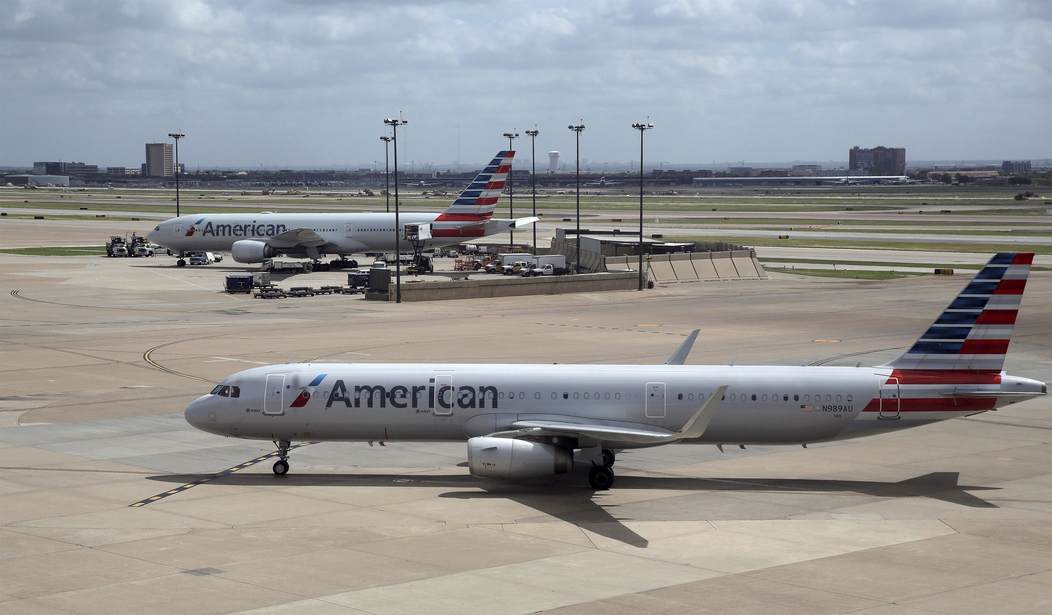If you’re one of the brave souls who are venturing out to take commercial flights this summer, you’ve probably noticed a frustrating trend. Significant delays and flight cancellations have been holding up travelers at airports all over the country. This pattern is making an already nerve-wracking experience even more difficult as people return to both business and vacation travel. Some issues were driven by rough weather or mechanical issues, but for many of the airlines it just comes down to a matter of staffing. They don’t have enough workers to handle the sudden surge in air travel, which is now approaching pre-pandemic levels.
Elected representatives must be getting an earful over these developments and now Democratic Senator Maria Cantwell of Washington, who chairs the Senate Commerce Committee, has questions. A lot of questions. And she’s sent them off to the heads of all of the major airlines. They’re going to have some explaining to do because the American taxpayers bailed them out three times over the course of the pandemic with the understanding that the financial help they received (to the tune of more than $50 billion) was supposed to prevent precisely this issue. (Reuters)
The chair of the U.S. Senate Commerce Committee has asked the chief executives of six airlines including American Airlines (AAL.O), Delta Air Lines (DAL.N), Southwest Airlines (LUV.N) and JetBlue Airways (JBLU.O)to explain reported worker shortages despite receiving billions in pandemic bailouts.
Congress approved three separate rounds of taxpayer funding totaling $54 billion to pay much of U.S. airlines’ payroll costs through Sept. 30 as a result of COVID-19 – as well as $25 billion in low-cost government loans.
Senator Maria Cantwell, a Democrat, sent the airlines letters on Friday asking for answers to detailed questions about “recent reports of workforce shortages, flight cancellations, and delays, creating havoc and frustrating consumers as more Americans resume travel.”
What we’re seeing shouldn’t be much of a mystery to figure out. We discussed this last summer when the first of the airline bailouts were being handed out. Under the terms of the agreement with the government, when the airlines took the bailout money, they weren’t allowed to lay off any workers or cut their pay. This was intended to keep the industry ready to spring back to normal operations when the pandemic receded.
But just because they couldn’t schedule layoffs until September of 2021, that didn’t stop them from exerting pressure in other forms. Most of the airlines, including Southwest (which claims to be operating at their projected capacity), began offering enhanced early retirement or resignation packages. They offered sweeteners to convince workers to voluntarily leave the company. And as some of their union representatives indicated to reporters, the unwritten message was clear. If they didn’t take the offers when they were available, they would be getting the boot as soon as the government agreement expired and there would be no sweeteners included.
Plenty of workers thought they saw the writing on the wall and jumped at the offers, with the airlines making no effort to hire replacements. So in effect, the airlines were able to pocket the bailout money and still cut down on their labor costs dramatically without technically violating the letter of the bailout agreement. Back at the time all of this was happening during the summer and fall of 2020, it was kind of understandable. Nobody knew for sure when (or even if) a vaccine would be approved or how long it would take to roll out sufficiently for life and air travel to return to normal. Many thought it might not happen until some time in 2022.
Most of the airlines were up to a lot of other shady dealings last summer. Keep in mind that some of them were still refusing to offer cash refunds for flights canceled due to the pandemic, trying to force customers to take credit toward future flights. They were dredging up every trick in the book to keep their cash flow in positive territory.
But now demand has bounced back rapidly after the rollout of the mass vaccination campaigns. And the airlines didn’t anticipate that a lot of their workers might have moved on to other professions or would choose to stay home collecting enhanced unemployment benefits. It’s going to take them a while to catch up to the curve. But in the meantime, the Senate Finance Committee might want to be pondering another question. If the airlines violated the spirit of the bailout agreement, should they be giving some of that money back?








Join the conversation as a VIP Member